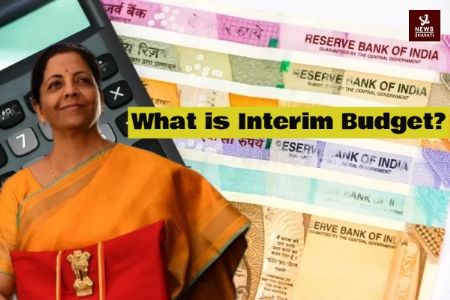Budget 2024: What is Interim Budget? How is it different from Union Budget?
Union Finance Minister Nirmala Sitharaman is slated to present the interim Budget for the fiscal year 2024-25 on February 1. But what is Interim Budget? How is it different from the Union Budget?
Total Views |
New Delhi, Jan 18: Union Finance Minister Nirmala Sitharaman discussed the upcoming Interim Budget that will take place on February 1 during the CII's Global Economic Policy Forum 2023 in New Delhi last month. She stated, "The Budget following the British tradition is called a vote on account (The Interim Budget) so no spectacular announcements are made that time. You may have to wait till after the new government comes in".

This Budget will serve as a provisional financial outline until the new government is formed after the general elections, with the full budget expected in July 2024.
In contrast to a comprehensive full-year Budget, which consists all aspects of government finances and outlines economic strategies for the entire fiscal year, an Interim Budget is more focused on immediate financial requirements during the transitional phase.
A vote-on-account, a key element of the Interim Budget, typically remains valid for two months but can be extended if necessary.
Major policy announcements are traditionally avoided during a vote on account, although there is no constitutional prohibition against substantial announcements.
The Interim Budget functions as authorization for specific expenditures necessary until a new government assumes office. However, in the general election years, the Election Commission of India imposes limitations to prevent undue influence on voters. The government is restricted from proposing significant taxes or policy reforms during this budget to ensure fairness in the electoral process.
In election years, it is customary for the incumbent government to present an Interim Budget, outlining vital expenditures like salaries for central government staff and ongoing project funding.
According to Article 116 of the Constitution, a vote on account signifies an upfront allocation from the 'Consolidated Fund of India,' specifically designated for addressing immediate expenditure needs. This fund includes all revenue generated by the central government, such as taxes and interest on loans. Typically effective for two months, a vote on account can be extended if necessary.
Before a vote on account, governments refrain from presenting the customary pre-budget 'Economic Survey,' which traditionally accompanies the full budget presentation in July. The Economic Survey provides insights into the economic state and key events.
Despite Sitharaman's cautious outlook, past instances demonstrate that surprises are not entirely ruled out in an Interim Budget.
It is pertinent to mention that Sitharaman is slated to present the interim Budget for the fiscal year 2024-25 on February 1. She will be presenting her sixth consecutive Budget on February 1, 2024, making her the first woman finance minister to achieve this milestone.

This Budget will serve as a provisional financial outline until the new government is formed after the general elections, with the full budget expected in July 2024.
In contrast to a comprehensive full-year Budget, which consists all aspects of government finances and outlines economic strategies for the entire fiscal year, an Interim Budget is more focused on immediate financial requirements during the transitional phase.
A vote-on-account, a key element of the Interim Budget, typically remains valid for two months but can be extended if necessary.
Major policy announcements are traditionally avoided during a vote on account, although there is no constitutional prohibition against substantial announcements.
Election Commission and Constitution on Interim Budget
The Interim Budget functions as authorization for specific expenditures necessary until a new government assumes office. However, in the general election years, the Election Commission of India imposes limitations to prevent undue influence on voters. The government is restricted from proposing significant taxes or policy reforms during this budget to ensure fairness in the electoral process.
In election years, it is customary for the incumbent government to present an Interim Budget, outlining vital expenditures like salaries for central government staff and ongoing project funding.
According to Article 116 of the Constitution, a vote on account signifies an upfront allocation from the 'Consolidated Fund of India,' specifically designated for addressing immediate expenditure needs. This fund includes all revenue generated by the central government, such as taxes and interest on loans. Typically effective for two months, a vote on account can be extended if necessary.
No major announcements in the interim budget
Despite Sitharaman's cautious outlook, past instances demonstrate that surprises are not entirely ruled out in an Interim Budget.

